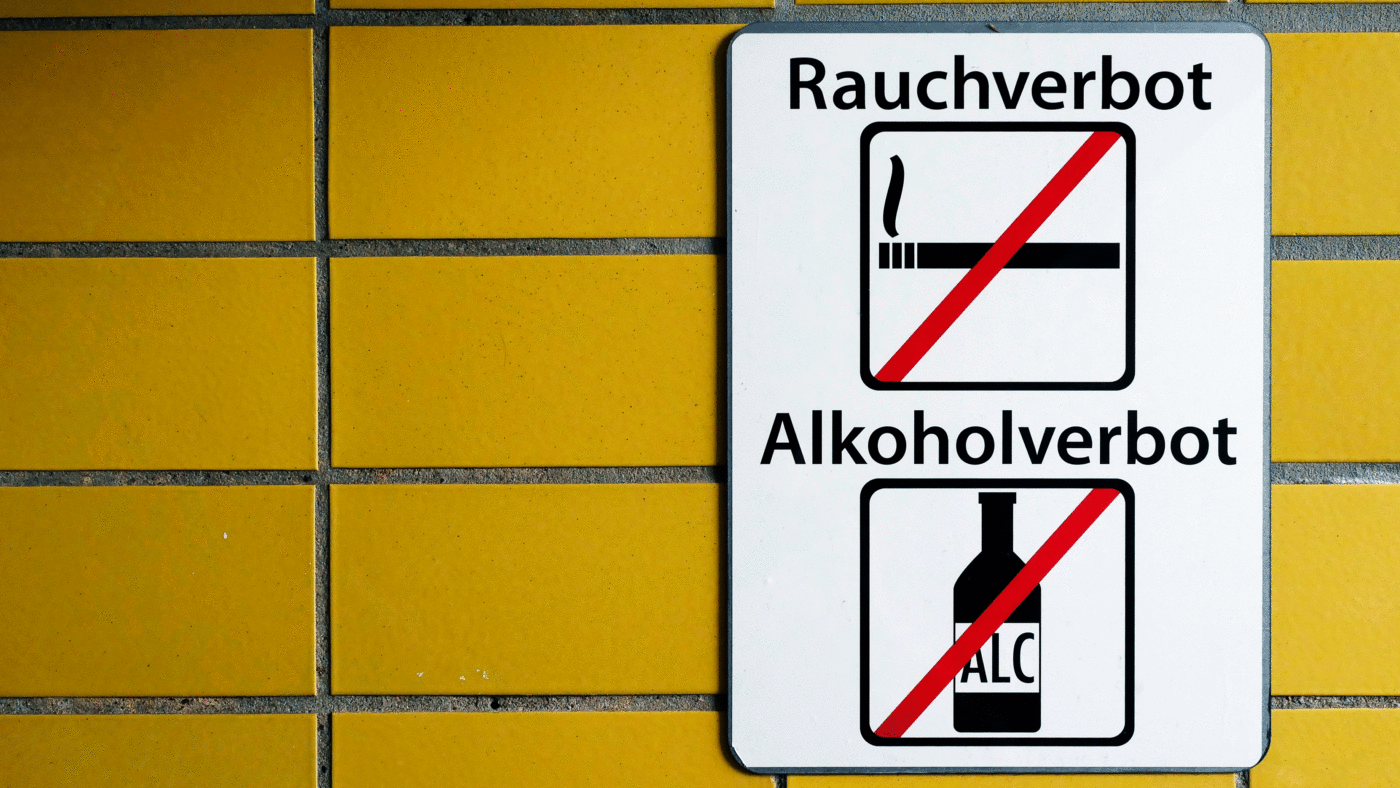After editing four editions of the Nanny State Index, the latest of which has just been published, I have concluded that it is not a good job for a libertarian. A nanny statist would get much more enjoyment from it, although they would rename it the Lifestyle Regulation Progress Index. Since its inaugural edition in 2016, I have documented an almost unmitigated downward spiral. The opportunities for adult consumers across Europe to drink, vape, smoke and eat freely diminish every year. Everything is steadily getting worse from my perspective.
Occasionally a government will grudgingly reduce taxes on alcohol or e-cigarette fluid in response to a surge in cross-border shopping or black market activity. Once in while, a politician will water down their plans to ban smoking outdoors or introduce a sugar tax. Now and again, the courts will rule some nanny state initiative to be unconstitutional. But such small victories are rare. All the momentum is with the paternalists of ‘public health’.
You might think that a genuine public emergency would put the nanny statists off their stride. Covid-19 reminded us of the difference between a genuine public health problem that requires collective action and self-regarding private behaviours which do not. But there was no slowing down of the nanny state juggernaut when the pandemic arrived. On the contrary, when lockdowns were introduced paternalists seized the opportunity to impose the kind of lifestyle regulation they had hitherto only been able to dream about. At one point, one in five people worldwide were living in a country where the sale of cigarettes and e-cigarettes was illegal. For a while, a quarter of the world’s population lived under alcohol prohibition.
As more people were forced to socialise outdoors, anti-smoking campaigners demanded outdoor smoking bans. Campaigners in the USA and elsewhere claimed (falsely) that smoking and vaping increased the risks of people catching the virus. E-cigarette shops and alcohol retailers were deemed ‘non-essential’ in many countries. When lockdown ended, bars reopened but some countries did not allow them to serve alcohol. Boris Johnson’s brush with death persuaded him that now was the time to ban advertisements for ice cream.
It is an ill wind that blows no good, and the pandemic response also led to modest liberalisation in some places. A few countries legalised home delivery for alcoholic drinks. Some countries, such as the UK, allowed more bars to serve drinks on the street. But, overall, the pandemic gave the nanny statists an opportunity to ruthlessly exploit.
The Nanny State Index does not include temporary policies designed to fight the pandemic, but the outlook is bleak nonetheless. To get an idea of how illiberal things are becoming in Europe, the UK has dropped to twelfth in the league table (from fourth in 2019) with liberalising anything. Freezing alcohol duty for a few years and regulating e-cigarettes in a relatively sensible way is enough for us to be in mid-table, despite very high sin taxes in general, including a sugar tax, and the toughest smoking ban in Europe.
Another sign that things are going downhill is that I have to keep adding new categories to the index to keep up with the latest bans. In the last edition, I had to create a category for minimum alcohol pricing after Scotland adopted it. I had to add a category for the age at which alcohol can be purchased after Lithuania raised it to twenty. In 2017, I had to add plain packaging for tobacco. This year I had to add a retail display ban for alcohol – AKA the booze curtain or beer burka – thanks to Ireland legislating to cordon off alcoholic drinks in shops with a physical barrier. If the noises coming out of Denmark and the Netherlands are correct, the next addition will be plain packaging for e-cigarettes. Where does it end?
The big picture is one of a constantly expanding nanny state raising prices and trampling freedom. Almost without exception, governments across Europe are adopting higher sin taxes and more prohibitions. We can’t even blame the European Union. Yes, the EU banned menthol cigarettes in May 2020, but it cannot be held responsible for regressive taxation, draconian smoking bans and excessive regulation of alcohol and food. The gulf between the freest countries at the bottom of the table (Germany, Czechia, Luxembourg) and the least liberal countries at the top (Norway, Lithuania, Finland) is almost entirely the result of decisions made by their own governments.
This means that change is possible. The most nannying countries do not have longer life expectancies, lower smoking rates, less obesity or fewer alcohol-related deaths than the ones at the bottom, so why do we put up with this endless interference in our private lives? Why do we give a public health establishment that was so ill-prepared for a real public health crisis so much power to micromanage us? Perhaps there will be a backlash eventually, but I don’t expect to be the bearer of good news when the next Nanny State Index is published.
Click here to subscribe to our daily briefing – the best pieces from CapX and across the web.
CapX depends on the generosity of its readers. If you value what we do, please consider making a donation.


